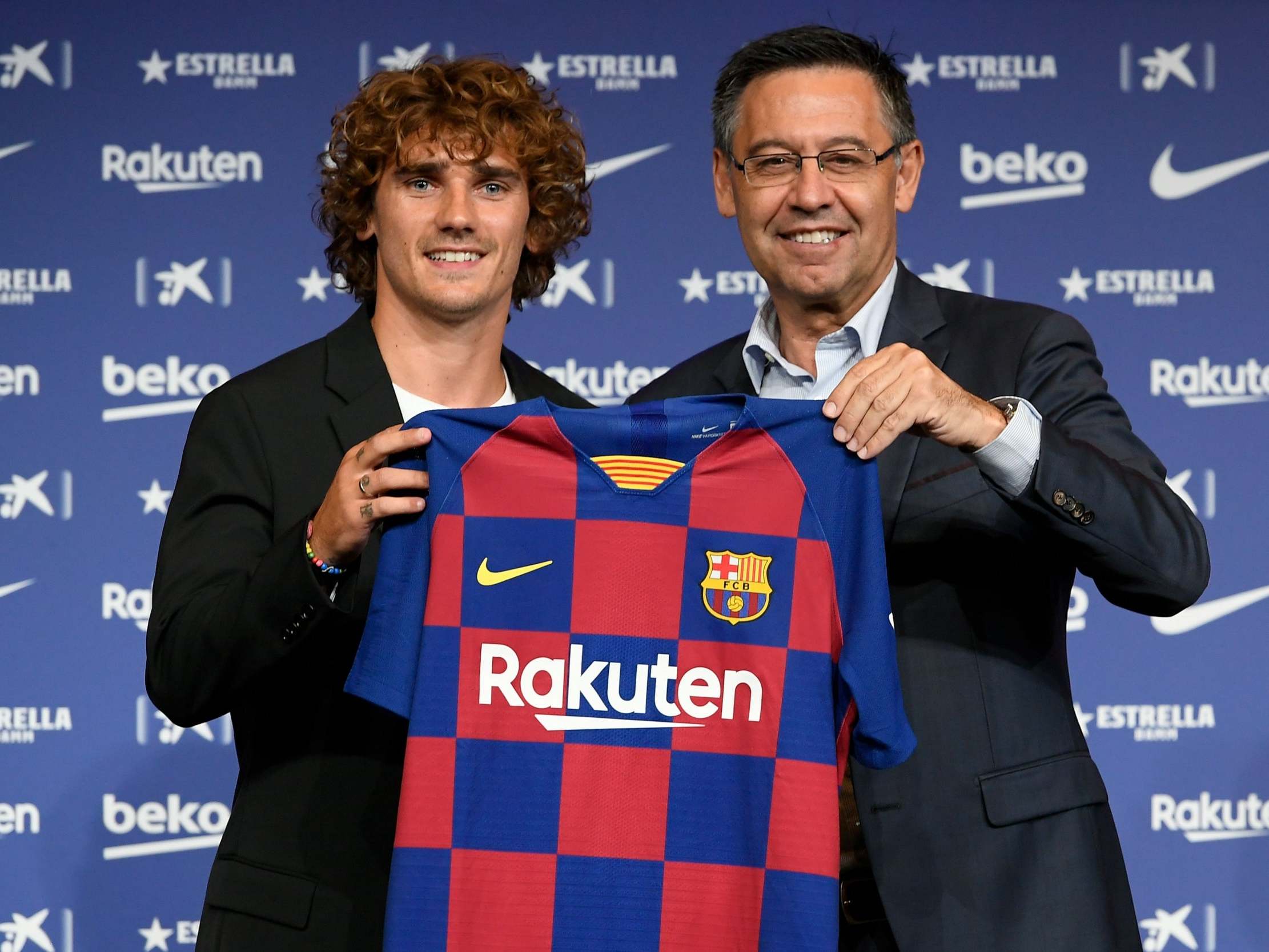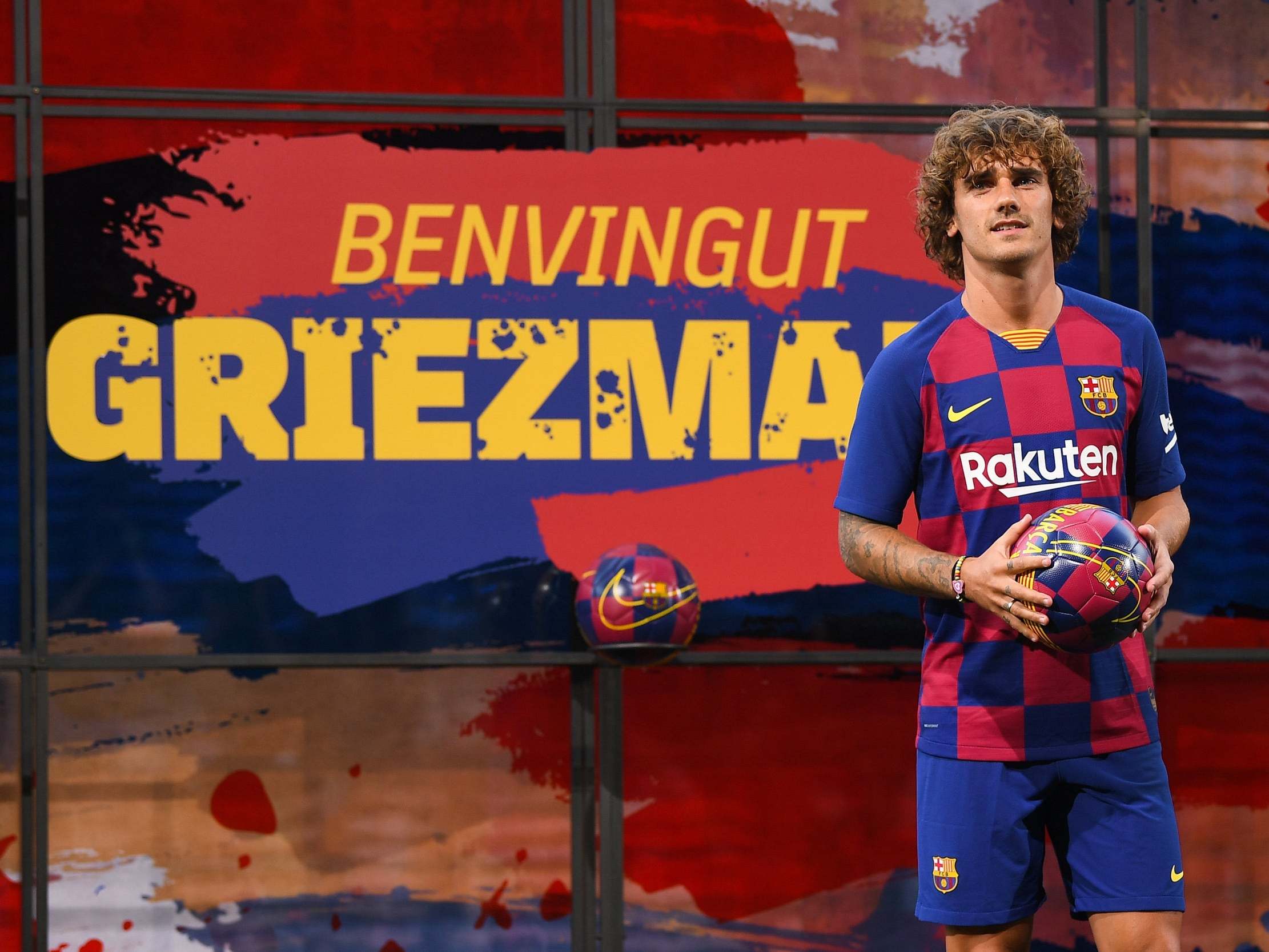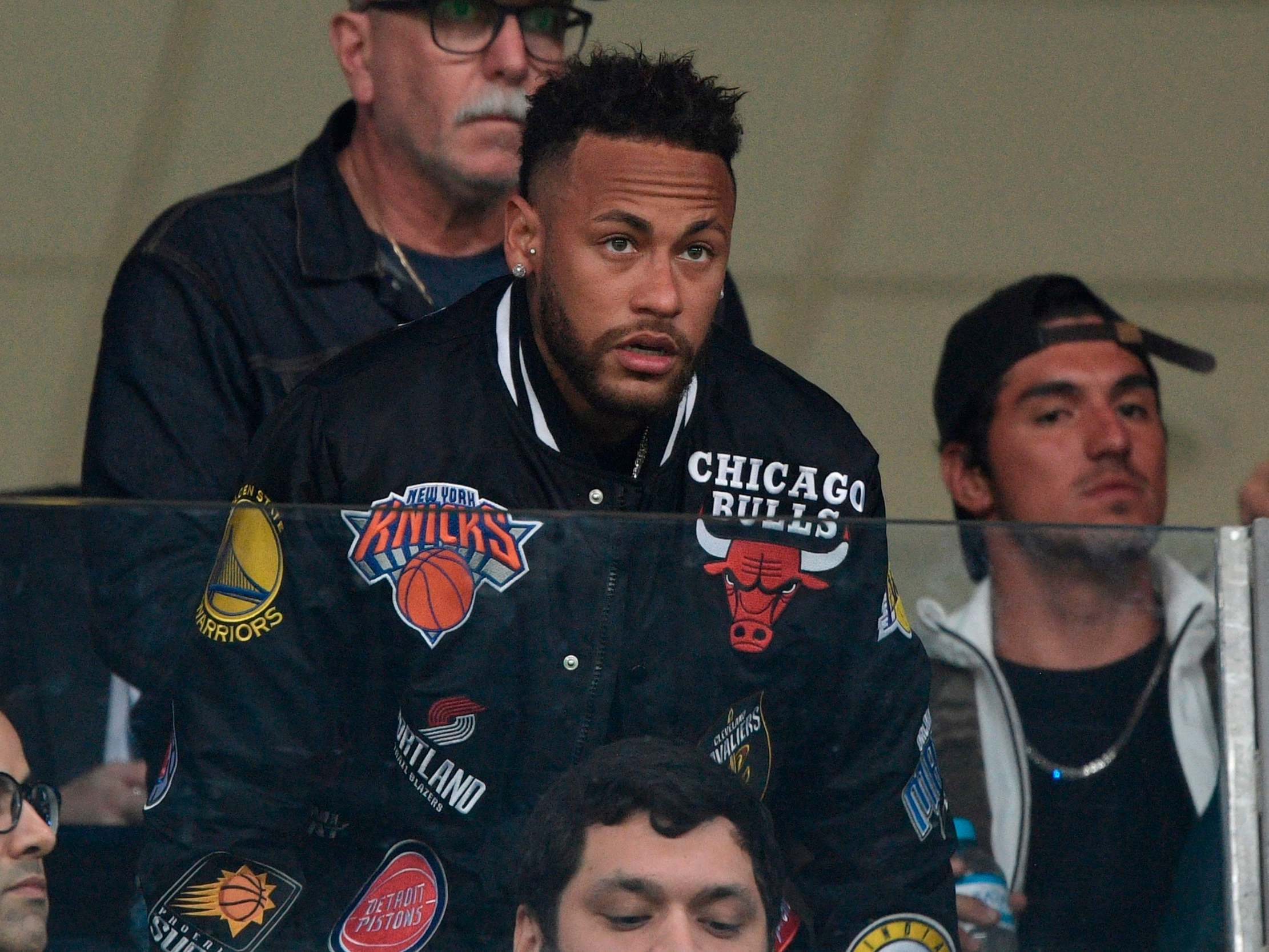Why signing Antoine Griezmann and Neymar could push Barcelona past breaking point
Barca’s total wage-bill has more than doubled over the last four years with the potential arrival of Neymar raising serious issues over the club's finances and organisational structure that will go on long beyond this summer transfer window

Your support helps us to tell the story
From reproductive rights to climate change to Big Tech, The Independent is on the ground when the story is developing. Whether it's investigating the financials of Elon Musk's pro-Trump PAC or producing our latest documentary, 'The A Word', which shines a light on the American women fighting for reproductive rights, we know how important it is to parse out the facts from the messaging.
At such a critical moment in US history, we need reporters on the ground. Your donation allows us to keep sending journalists to speak to both sides of the story.
The Independent is trusted by Americans across the entire political spectrum. And unlike many other quality news outlets, we choose not to lock Americans out of our reporting and analysis with paywalls. We believe quality journalism should be available to everyone, paid for by those who can afford it.
Your support makes all the difference.Teaming up Barcelona captain Lionel Messi with new signing Antoine Griezmann, and also bringing back Neymar from Paris Saint Germain, excites many both inside and outside the Camp Nou.
But with Barca’s finances already worryingly stretched even before paying €120 million to sign Griezmann last week, the idea of pushing the limits even further to sign Neymar should trouble anyone concerned about the Catalan club’s long-term economic health.
Ex-Atletico Madrid forward Griezmann’s arrival has brought Barca’s summer spending to almost €240 million, including Frenkie De Jong from Ajax (€75m). While players worth around €100 million have been sold - including Andre Gomes to Everton (€25m). However the club’s tricky financial situation still left the blaugrana board scrambling embarrassingly last week.
Barca’s directors made an eleventh hour attempt to negotiate a staggered payment plan for Griezmann, drawing an angry rejection from Atletico. The €120m required to physically trigger his release clause was eventually located via an unconventional mix of sources, as club president Josep Maria Bartomeu admitted at the new player’s presentation on Sunday.
“The club has taken out an unguaranteed €35 million loan for six months, and the other €85 million comes from advances of money owed from the sales of players,” Bartomeu explained to reporters and supporters who may not all have fully followed what they were hearing.
Someone with more understanding of the financial intricacies of such transfers is Prime Time Sport CEO Esteve Calzada, who served as Barca’s chief marketing & commercial officer from 2002 to 2007.
“You normally do not have €120m in the bank,” Calzada told The Independent. “I don’t think Barca have called the clubs owing them money from transfers. For example, you cannot go to Everton and ask for all the installments agreed for Andre Gomes now. That's not how it works. Instead you ask a financial entity for an advance of the money you've been promised.”
With such anticipatory steps having been required to sign Griezmann, meeting PSG’s reported €300 million asking price for Neymar looks just impossible. That would explain why Barca have apparently offered both Philippe Coutinho and Ousmane Dembele in part-exchange, plus €40 million on top, only to see that rejected by PSG.
Calzada says that both Barca's most recent big money arrivals Coutinho and Dembele must be sold to have any realistic possibility of signing Neymar now.
“Barca has performed very well in terms of generating revenues and selling players,” he says. “But the only way to afford [both Griezmann and Neymar] is to get rid of both Coutinho and Dembele for a proper price tag. Or you give PSG first team players like Ivan Rakitic or Samuel Umtiti, that you would still have to replace afterwards. Which would not be easy. There is no magic financial solution such as a new sponsor. That just will not happen.”
Barca’s revenues have been growing significantly through recent years. Last October they announced total income for 2017/18 had risen by 29% to a record high of €914m, and predicted revenue for 2018/19 of €960m.

However outgoings are simultaneously climbing just as quickly. The accounts show a clear need to keep players coming and going to balance the books, as sums paid out can be ‘amortised’ over the length of the new signing's contract.
An interested observer with experience in such matters is Victor Font, founder and CEO of Dubai-based investment firm Delta Partners, and a Barca member who plans to run for the club’s presidency when elections are next held.
“When you look at the financial implications of a big transfer there are always two things - the total investment and how you pay for it,” Font told The Independent. “Any club would have a problem raising €120m in cash, although from a pure ‘Profit and Loss’ perspective it can be amortised over the years of the player’s contract. The other very significant implication is how it impacts on your yearly operating expenses.”
Relevant here is that Barca’s total wage-bill has more than doubled over the last four years, to become the highest in world football. The club’s latest official figures say that salaries rose by over 40% to €529m in 2017/18 - almost €100m more than the total paid to players at rivals Real Madrid.

Barca’s wages to turnover ratio in 2017/18 also increased from 52% to 70%, coincidentally or not hitting the ECA maximum level allowed of 70% (by contrast Real Madrid’s is 53%).
Subsequent departures of well paid veterans Andres Iniesta and Javier Mascherano will have helped, but Griezmann’s arrival and Neymar returning could push the ratio past breaking point.
“Barcelona is the highest paying sports organisation in the world,” Font says. “81% of ordinary revenues, without income from selling players, go to paying salaries of players. That is a very relevant pressure point in the club's finances. Signing Griezmann and Neymar, two of the best paid players in the world, would have implications. Every year recently and next year again, unless you can generate a lot of income through selling players, you cannot have a profitable P and L. A problem is the club is not being necessarily fully transparent about the commitments for the near future, and how the cost structure will be managed.”
Close followers of Barca’s finances will be aware of article 67 of the club’s statutes, which mandates that the board must resign if the club’s debts exceeds twice EBITDA (profits before taxes, interest, depreciation and amortization).

There are different interpretations of how that ratio is measured exactly, but the statute has restricted Barca’s possibilities in the transfer market through recent seasons - when cut price options like Kevin Prince Boateng and Jeison Murillo have been brought in to fill gaps in the squad.
“The board have not gone beyond where they can go,” Calzada says. “It is as simple as that. I know for a fact that a couple of years ago they had an opportunity to sign some players, but they could not, as it would have taken them beyond their limit.”
The tightness of the situation means that Barca’s board members - lead by Bartomeu who is an engineer by profession - are regularly making very complex transfer decisions requiring a mix of football and financial expertise.
“To get to the board you have to be a successful businessman, there is no other way,” Calzada says when asked if there is enough finance knowledge in the Camp Nou boardroom. “The question is whether experience in another industry is applicable to sports, and to Barcelona in particular. But they have obviously proven themselves, otherwise they would not be sitting on the board.”

Font suggests that the close involvement of the president and directors in transfer negotiations could be limited in future by a change to the club's decision making processes.
“The governance model that has worked through our 100 years of history is not valid any more,” he says. “When making a sizeable investment, like the signing of Neymar, the board must approve it as a strategic decision. But execution of strategy, such as negotiations, should be outsourced to the best possible executive team. That is what you see in any professional organisation.”
So the complexity of the situation, and PSG's much more direct ownership and decision-making model, suggests Neymar will not follow Griezmann to the Camp Nou this summer.
But even considering the possibility flags up serious issues in Barca's finances and organisational structure, which will continue past the end of this summer's transfer window.
Join our commenting forum
Join thought-provoking conversations, follow other Independent readers and see their replies
Comments